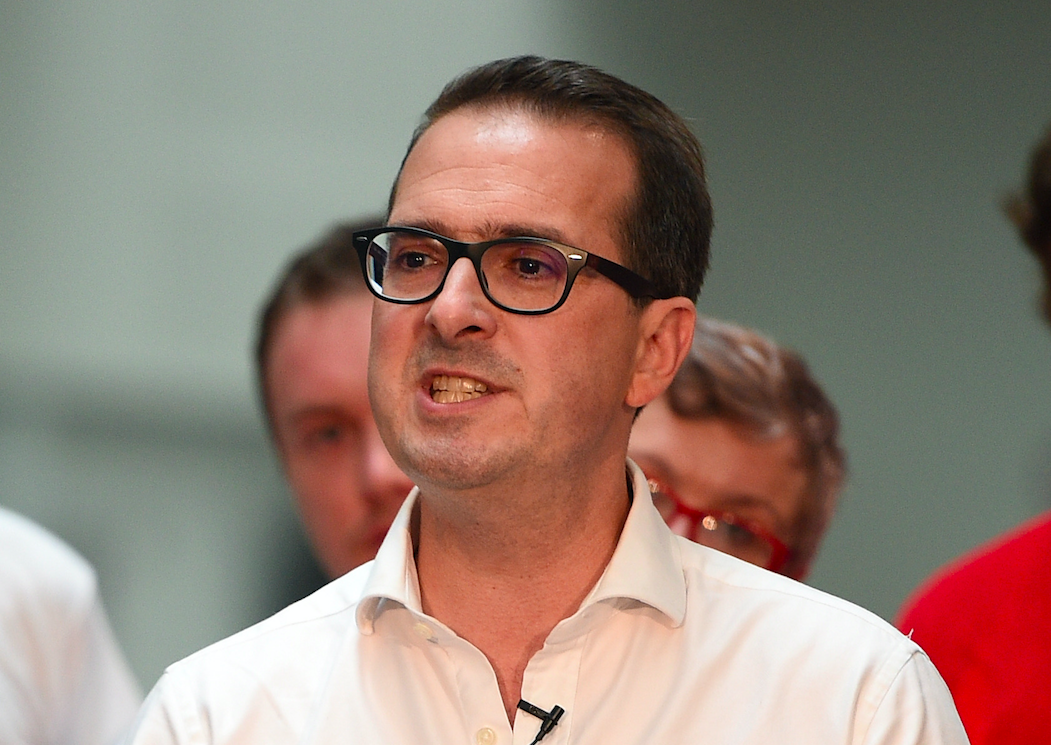Owen Smith looks to undercut Jeremy Corbyn with anti-Blairite speech and Ministry of Labour plan
Promise is similar to pledge made by the Labour leader a year ago, which he is yet to acted on

Owen Smith, Jeremy Corbyn’s challenger, has vowed that if he is Prime Minister, he will recreate the Ministry of Labour, a government department that was abolished by a Labour Prime Minister 48 years ago.
He has also promised that if elected Labour leader, his front bench team will include a shadow Secretary of State for Labour.
Labour’s bitterly fought leadership contest is continuing despite a court case heard on Tuesday which could derail it. Michael Foster, a wealthy Labour donor and former parliamentary candidate, is asking a High Court to overturn a decision by Labour’s national executive that gave Mr Corbyn an automatic place on the ballot paper, when his challenger was obliged to collect nominations from at least 50 MPs or MEPs.
Gavin Millar QC, representing Mr Foster, asked the judge to halt the contest and give Mr Corbyn 48 hours to garner the necessary nominations before proceeding, though it is not certain that Mr Corbyn could find that many MPs prepared to nominate him. The judge has said he will deliver a verdict on Thursday.
In the expectation that Mr Corbyn will still be in the running, Labour’s general secretary Iain McNicol has announced that the pair will go head to head at their first hustings in Cardiff on 4 August.
Mr Smith’s latest promise is strikingly similar to one made by Mr Corbyn when he was running for the leadership a year ago, but which he has yet to act on. The challenger’s campaign pitch is to present himself as more competent than the incumbent leader, and more in tune with the instinctive patriotism of working class voters, at a time when Labour is trailing badly in opinion polls. An ICM poll had the Conservatives on 43 per cent, their highest figure in an ICM poll since 2009, and Labour on 27 per cent, their lowest since 2009. However, there are few signs that opinion polls, or the question of competence, will put off Mr Corbyn’s highly committed supporters, who number in the hundreds of thousands.
In a major speech setting out his stall for the forthcoming Labour leadership election, Mr Smith will say that in his pursuit of greater equality in a Britain, he will campaign for workers’ rights, and establish a Ministry of Labour if he is Prime Minister and appoint a shadow of State for Labour if he is elected party leader.
The Ministry of Labour was originally set up in 1916 by the wartime coalition government of Liberals and Conservatives headed by David Lloyd George, but was absorbed in 1968 into the new Department for Employment, which in turn was absorbed into the Department for Work and Pensions. The last Minister of Labour was a former railway worker and wartime Army captain named Ray Gunter, nicknamed ‘Gunter the Grunter’, who lost the post in 1968 when he clashed with Harold Wilson over union rights.
Mr Smith is due to visit a modern business hub in Yorkshire, on the site of the former coking plant at Orgreave, near Sheffield, scene of a pitched battle between pickets and police during the miners’ strike in June 1984. The speech he is expected to deliver there will have a distinctly Old Labour flavour - evidence that the challenger’s strategy is to pitch his appeal to Labour’s soft left, on the assumption that the Blairite wing of the party will vote for him anyway.
Mr Smith is expected to say: “We need to rediscover a sense of national mission for Britain - a faith in our country as having a future as bright as it’s past. And one where the fruits of our collective success are shared more equally between us, where outcomes can be equal, not just the opportunities we create.
“That is why I am in politics. The Labour Party has achieved so much for social justice, but we need to be more than just our history.
“So in the next few weeks I'll be setting out my vision for Labour's future - a future of fair taxes, fair employment and fair funding. That means investment, not cuts, with a British New Deal to defeat Tory austerity and re-balance the country. And under my leadership, it would mean a strengthening of employment rights including creating a new shadow Cabinet Secretary of State for Labour tasked with making Britain the envy of the world for the quality of our jobs and the protections they have, so workers have access to better terms and conditions.“
The most ridiculous claims made about Jeremy Corbyn
Show all 11Mr Smith’s emphasis on equal outcomes, as opposed to equal opportunities, is in direct contrast to what Tony Blair advocated in the 1990s as he tried to break away with what he called Old Labour. Interviewed by Jeremy Paxman, for the BBC, in 2002, the then Prime Minister said: “Does equality mean equality of outcome? Or does it mean equal status, which includes equal opportunity? In my view it means equal opportunity.”
But Mr Smith’s emphasis on workers’ rights echoes one of Mr Corbyn’s themes during last year’s leadership campaign. Last August, he promised that if he were Prime Minister he would create a Ministry of Labour “to deal with work, working conditions, and the issue that go with that.”
Subscribe to Independent Premium to bookmark this article
Want to bookmark your favourite articles and stories to read or reference later? Start your Independent Premium subscription today.

Join our commenting forum
Join thought-provoking conversations, follow other Independent readers and see their replies